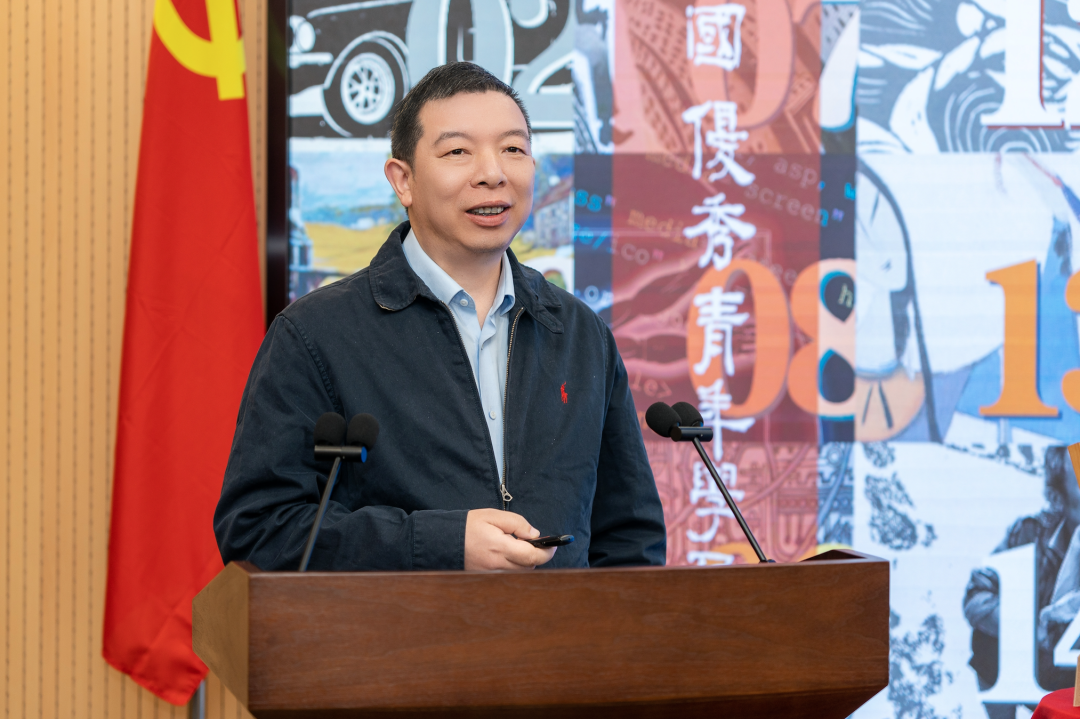Zeng Jun: On the reconstruction of the Chinese literary knowledge system with digital media
Prof. Zeng Jun, Director of the Humanities and Social Sciences Office of Shanghai University and a Young Changjiang Scholar of the Chinese Ministry of Education, delivered a keynote speech with the title: On the reconstruction of the knowledge system of Chinese literature with digital media.

Based on a discussion of the definition of media, the history of media culture and history in general, Zeng Jun recounted the histories of literary and artistic genres, and structurally examined the structural poetics of digital media literary and artistic activities. He pointed out that media is ubiquitous. The change of media form has accelerated the knowledge renewal of literature and art theory, and the knowledge system of new media literature and art theory is also undergoing drastic changes. When discussing the reconstruction of Chinese literary knowledge system, digital media must be taken into account.
Media are more than “news media” and “mass media”. As intermediaries, the media are the material and the carrier. As a tool, the media are extensions of men; and as a system, the media represent a cultural industry. John Fiske closely combined media with literature and cultural issues. In his book Introduction to Communication Studies: Process and Symbol, he divides media into three main groups which he calls presentational, representational and mechanical. These three kinds of media are not simple technological turnover, but mutually compatible and inclusive. The late-coming digital media, including computer, digital television, digital film, Internet, artificial intelligence, virtual reality, etc., are compatible with the former three types of media, and no longer subject to the technical restrictions of the former.
The latter are a type of cyber art. It is generally accepted that the development history of media culture can be divided into oral culture, writing culture, printing culture, mechanical reproduction and digital eras. However, there are lots of overlap and interweaving of between different media culture phases. For instance, after the age of mechanical reproduction and printing, technological change has become extremely intense.
In the age of digital media, it is possible to reconstruct the knowledge system of literary and artistic theories from the perspective of media. The change of art types in different eras is not simply about replacements, but about re-absorption and restructuring as well. The interaction emphasized in the digital age is the interaction between human and non-human, between machine and program, and this interaction has produced a new subject called the “post-Anthropocene”.
What do the digital media do to poetics? Zeng Jun suggested that they are reshaping relationships involved in literary and artistic activities in a “media ecological” way, emphasizing that various media elements in literary and artistic activities were digitalized. All the structural systems of the previous four elements of media literature have changed. Media are now everywhere. Their presence call for a completely new system of literary theory.

